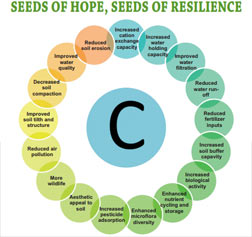The struggle over the control of seed stocks did not start with the advent of modern agriculture at mid-20th C. The Romans built granaries from rough-hewn granite and guarded their wheat, rye, barley, and seed stores for a reason (Rickman 1971). The Colhua Mexica raided the seed dispensaries of Azcapotzalco after burning the codices in the libraries of the tyrant Maxtla when they first achieved independence from their Tecpanec oppressors in a revolt led by Tlacaélel (León-Portillo 1963 [1990]). Today, a handful of global biotechnology corporations and their philantrocapitalist allies are seeking an oligopolistic level of global control over seed stocks. This is once again pushing the frontiers of the struggle over seed into an extraordinary period of conflict that will redefine the nature of our collective future relationship with the Earth, its ecosystems, and fellow organisms.


















